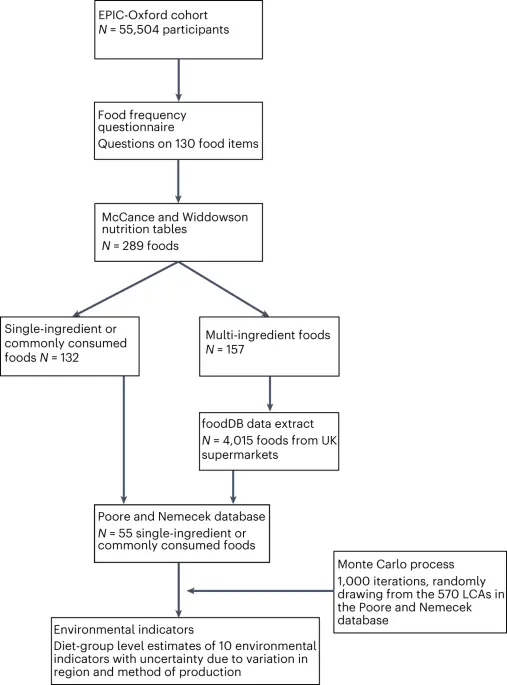All environmental indicators showed a positive association with amounts of animal-based food consumed. Dietary impacts of vegans were 25.1% (95% uncertainty interval, 15.1–37.0%) of high meat-eaters (≥100 g total meat consumed per day) for greenhouse gas emissions, 25.1% (7.1–44.5%) for land use, 46.4% (21.0–81.0%) for water use, 27.0% (19.4–40.4%) for eutrophication and 34.3% (12.0–65.3%) for biodiversity. At least 30% differences were found between low and high meat-eaters for most indicators. Despite substantial variation due to where and how food is produced, the relationship between environmental impact and animal-based food consumption is clear and should prompt the reduction of the latter.



I’m kind of surprised how small the difference is w.r.t. carbon emissions, but I saw that they’re counting land use differently and I guess not accounting for the increased carbon emissions from requiring much more forest land to be burned down and turned into pasture to support meat diets?
I would suggest that eating meat !== burning down forest land. That’s a policy and regulation issue that could be corrected or severely reduced. It’s the policy makers, paid out by industry lobbies, who allow for such absurdity
Where do you think pasture land comes from
From the cheapest lots available. Prices are dictated or influenced by legislation. If we can pay farmers to NOT grow corn, we can pay farmers to use specific kinds of lands, revitalize dying landscapes, and support natural ecosystems.
I guess you’re going to do your part to stop supporting those industries?